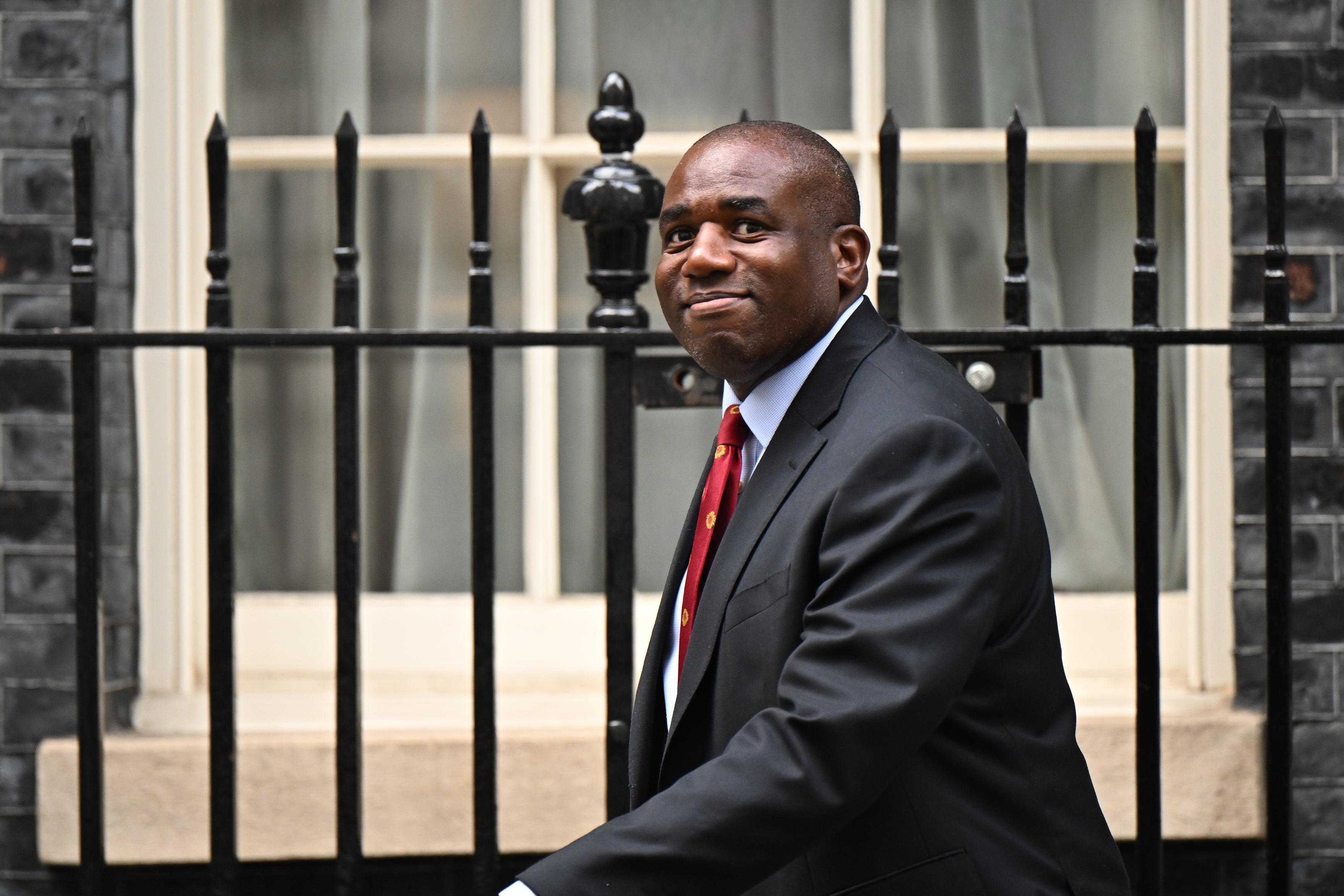David Lammy’s token gesture will hardly advance the prospects for peace
Editorial: The new foreign secretary must now demonstrate why his curiously half-hearted policy of suspending the sale of some arms to Israel is being advocated for and implemented now

Though far from unprecedented – five previous administrations have done something similar – the government’s decision to rescind some UK arms export licences to Israel is a significant, and troubling, development.
It begs many questions about the UK’s attitude towards the conflict in Gaza, and exactly how it judges the moral and legal, as well as political, status of the participants. Those questions remain unanswered – and that is at least part of the reason why the move, one that the defence secretary admits will have no material impact on the Israeli Defence Forces, has proved so controversial.
On the face of it, at least, the government’s case, set out in the Commons by the foreign secretary David Lammy, has merit in domestic and international law. The longstanding policy of successive governments has been to limit arms exports where the items concerned might be used to commit or facilitate serious violations of international humanitarian law.
Even a cursory examination of Israel’s actual conduct of the war in Gaza over the past 10 months substantiates Mr Lammy’s assertion that “Israel could reasonably do more to ensure that life-saving food and medical supplies reach civilians in Gaza, in the light of the appalling humanitarian situation”. Something of an understatement, that, with 40,000 Palestinian casualties thus far.
It is also fair, in the light of apparently well-founded media reports, to question Israel’s treatment of Palestinian detainees. As Mr Lammy rightly points out, there is no moral equivalence between Israel and Hamas – and, of course, the UK does not supply arms to terrorists such as Hamas in any case. But Israel faces grave charges about the way its government has acted.
The British government’s decision, then, rests on humanitarian legal grounds. Yet the published guidance, while detailed, does not quite constitute the formal legal advice that the foreign secretary and, presumably, the prime minister and the cabinet were presented with. Fundamentally, despite the clear record, no international court has yet judged that war crimes have been committed, even though the possibility is perfectly clear.
The formal convention in government has always been that such legal advice is not usually made public but in such a case as this, it seems odd that it has not been. If the case is as powerful as Mr Lammy makes it, then it would do him some good to have it backed up and legally unassailable.
Diplomatically, it is more problematic. The UK’s loyalty to the Atlantic alliance has served it well but that can never be a reason to abandon the national interest, nor to agree to everything the White House does, as the war in Iraq proved. Nonetheless, in pressing Israel and Hamas towards a ceasefire and hostage agreement, it may not be helpful if London annoys Washington – much the senior and more powerful diplomatic partner – in straying from an agreed joint line.
Reports from the US suggest the Biden administration is disappointed with the UK because it has made Biden’s and his secretary of state Antony Blinken’s diplomacy harder. The public displeasure expressed by Mr Netanyahu may be more easily discounted but, at this critical juncture and so soon after the funerals of the latest murdered hostages, the British announcement could have been better timed, and paused to await the fate of the latest ceasefire initiative.
Politically, the succinct verdict of the shadow foreign secretary Andrew Mitchell has the ring of truth to it: “It has all the appearance of something designed to satisfy Labour’s backbenches, while at the same time not offending Israel, an ally in the Middle East. I fear it will fail on both counts.”
So it has proved – with its simultaneous angry rejection by Mr Netanyahu and figures on Labour’s left such as Coventry MP Zarah Sultana. That doesn’t make the policy wrong but it does prompt the question about why the policy wasn’t advocated by Labour long ago, while it was in opposition, at the time of the Rafah offensive, for example – or even earlier, when humanitarian concerns and associations of genocide started to be thrown at the Israeli government. When the defence secretary John Healey freely admits the sanction will make no difference to the IDF, the obvious question is: “Well, why do it?”
Mr Lammy is not without governmental experience – he served as a minister of state under Gordon Brown – and is a well-qualified lawyer. His steady, calm demeanour since taking on his new role is to be commended and on balance, in his approach to the partial arms embargo, he most likely is more right than wrong.
He has also rightly reiterated Israel’s right to defend itself. He does not, as Boris Johnson has disgracefully suggested, want Hamas to “win”, whatever that is supposed to mean.
Nonetheless, the new foreign secretary will have to work harder to demonstrate why this curiously half-hearted policy is being advocated for and implemented now, and how it is going to make a valuable difference in practice to the prospects for peace.
Join our commenting forum
Join thought-provoking conversations, follow other Independent readers and see their replies
Comments
Bookmark popover
Removed from bookmarks